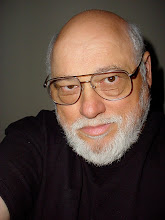On Sunday, a group of pastors led by Skyline Wesleyan Church's Jim Garlow will turn explicitly political on the pulpit as part of "Pulpit Freedom Sunday." Some will directly endorse a presidential candidate - most likely Mitt Romney - while others will tell their congregation they should vote based on issues like abortion or same-sex marriage.
The event, in its fifth year, is designed as a provocation to the Internal Revenue Service in order to challenge the legal prohibition on tax-exempt organizations engaging in partisan politics under the Johnson Amendment. The pastors plan to record their sermons and send them to the IRS in order to encourage an audit - which they would then challenge in court in hope of getting the law to be declared unconstitutional. Garlow estimates that 1,500 or more pastors will participate.
I spoke to Garlow on Thursday. A transcript of our conversation, which has been condensed and lightly edited for clarity, is below. A Pew survey earlier this year found that a majority of Americans (54 percent) believe that churches should keep out of politics, while 40 percent say religious institutions should express their views on social and political matters.
How, in your mind, does the law violate religious liberty?
GARLOW: The Johnson Amendment in a sense changed 166 years of freedom in the pulpit, when there was no speech restrictions put on pastors at all. That, of course, changed on July 2, 1954, and the history of it very simply is that Lyndon Baines Johnson, then senator, returned from Texas upset with two businessmen who had opposed him through their 501(c)3s - their not-for-profit corporations. And since there was a tax overhaul going through the Senate at that time, Johnson added what would become later known as the Johnson Amendment, a very short statement that 501(c)3s cannot endorse, directly or indirectly, or oppose a candidate.
There are 29 different categories of 501(c), but the speech restriction was put only on 501(c)3, that one category. Johnson's chief legislative aide would later admit that they didn't have churches in mind at all, he was directly wanting to impact the two businessmen in Texas, but churches obviously were swept into it. And that changed the dynamics. Prior to that time it had never been questioned whether or not the church had full, complete separation from the state, and there was no capacity on the part of the government to control or censor any kind of speech on any topic. Religion, freedom of religion, freedom of speech, guaranteed with the first amendment was unquestioned at that point. We have evidence of pastors all the way back to Thomas Jefferson's election, 1800, where they spoke out very strongly from the pulpit, either in opposition or in favor.
TONY DIGIROLAMO
THE TIME IS COMING AND I BELIEVE THE MOMENTUM IS WITH THE CHURCH TO MAKE GOOD ON WHAT THE GOVERNMENT DID DECADES AGO.



No comments:
Post a Comment